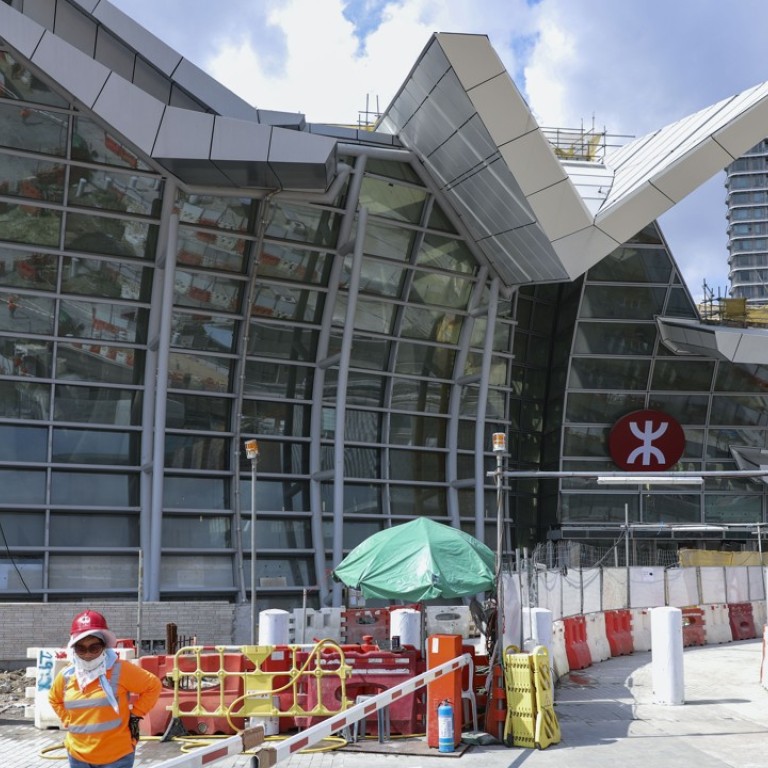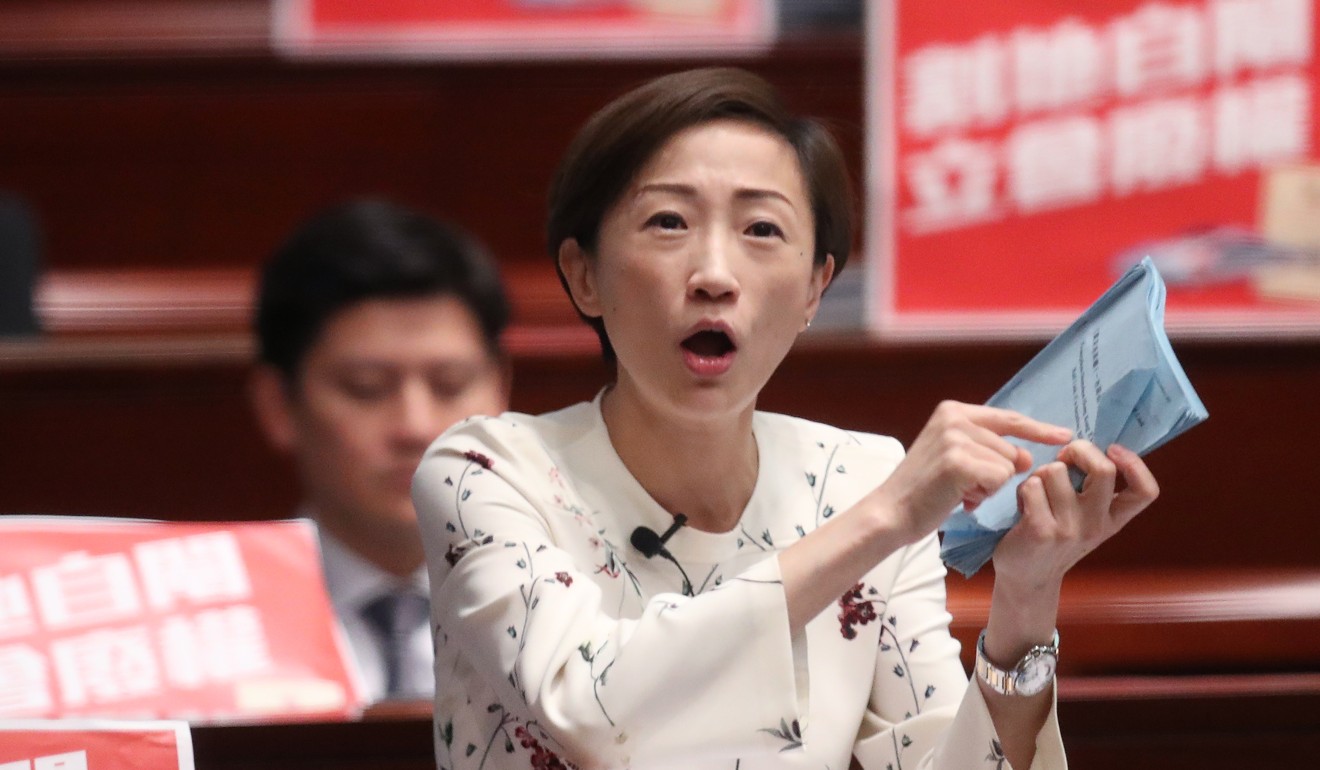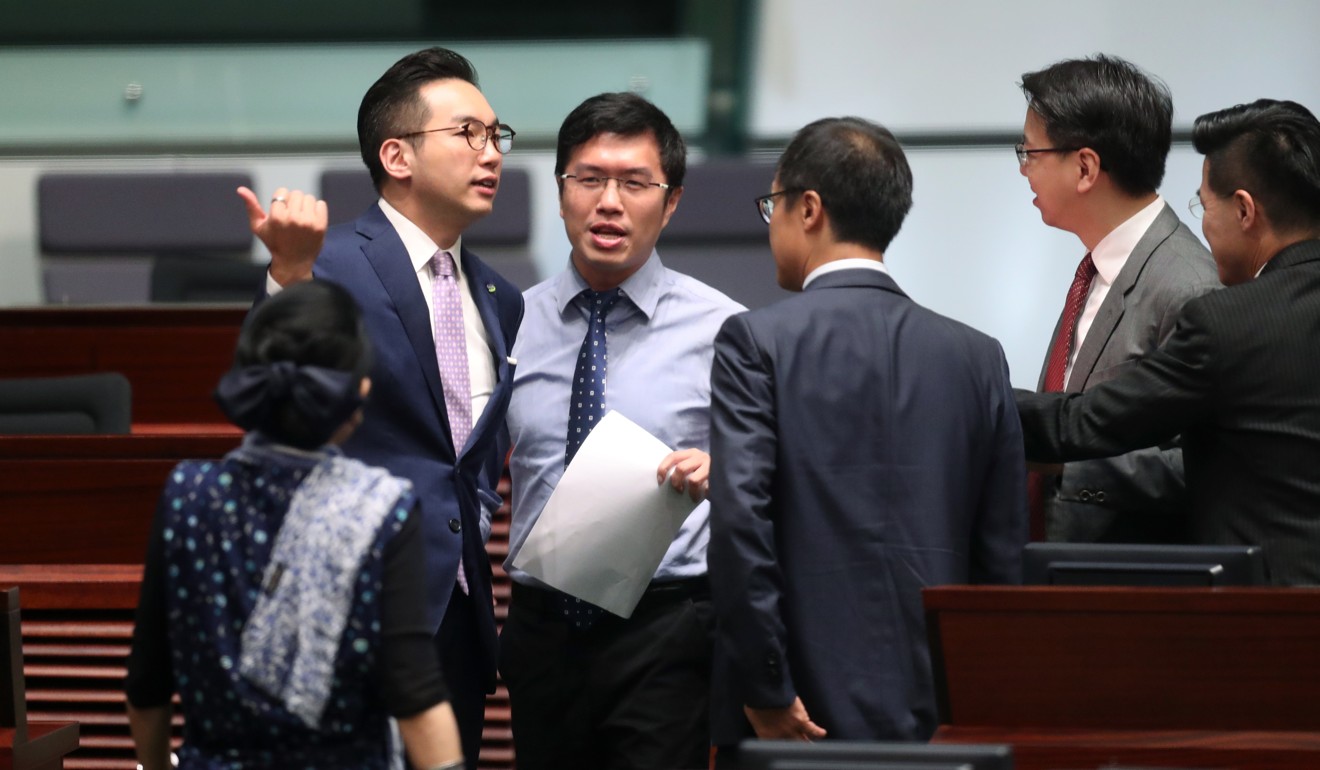
Filibustering Hong Kong’s controversial rail checkpoint bill will not delay bill, pro-democracy lawmakers told
Legislative Council president Andrew Leung slaps 36-hour window on debate, and throws out 51 of 75 pan-dem suggestions for changes to controversial law
Pro-democracy lawmakers will not be able to affect the progress of a bill on a controversial joint checkpoint at Hong Kong’s express rail terminus, a pro-establishment camp leader has said.

If passed, the bill would allow mainland Chinese authorities to enforce mainland laws within a 105,000 square metre area of the West Kowloon terminus.
Pro-democracy lawmakers, who said they would “take every chance” to speak, employed filibustering tactics to prolong the debate, such as repeated quorum calls, which took up almost two hours of the meeting.
The council did not finish the debate on Chan’s adjournment motion, and was set to reconvene on Thursday morning.
Starry Lee Wai-king, who chairs the Democratic Alliance for the Betterment and Progress of Hong Kong, said the pan-democrats’ delaying tactics would not affect the bill’s progress.
“It will only show that some lawmakers are abusing Legco procedures,” Lee said.

She said the same issues had been debated in bills committee meetings, and pan-democrats were only repeating themselves.
Speaking after the meeting, Secretary for Transport and Housing Frank Chan Fan said he hoped lawmakers would pick up the pace on Thursday.
Meanwhile, Leung issued a written reply to 24 pan-democrats to reject their demands to lift the 36-hour time limit and allow discussion of the 51 discarded amendments, arguing the bill was an urgent matter.
When it comes to co-location, it’s all about who is in control
The Legco president said it was not his duty to judge whether the bill had contravened the city’s mini-constitution.
“If lawmakers think the bill has violated the Basic Law, they can use the legislative power the Basic Law has granted to the council to amend or reject the bill,” he wrote.
Information Technology sector lawmaker Charles Mok, who convenes pro-democracy camp meetings, said Leung wanted to pass the bill “hastily”, a move he said was unprecedented.
Former Legco president Jasper Tsang Yok-sing, however, said it was not the first instance of a time limit being imposed.
Controversial joint checkpoint plan approved for high-speed rail link
Tsang said he had capped debate time on the 2015 budget bill because debates in previous years were dragged on by filibustering.
Speaking on Wednesday, the former Legco president said lawmakers should strike a balance between their right to speak and the legislature’s efficiency.
“If this co-location bill cannot be passed before the deadline, the administrative and economic loss could be larger than any [loss caused by] legal and constitutional issues of the bill.”
Additional reporting by Tony Cheung

